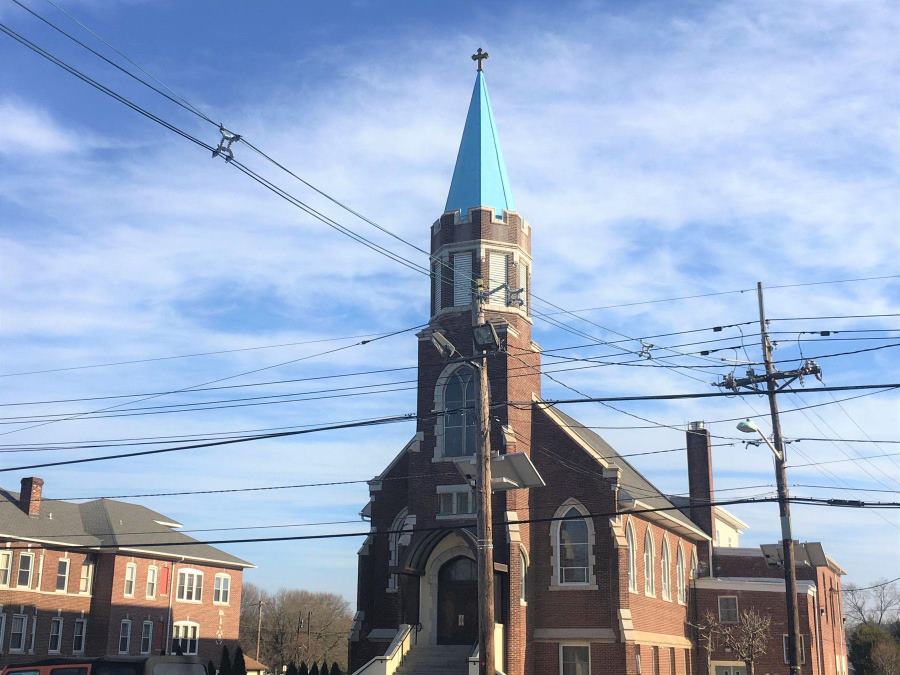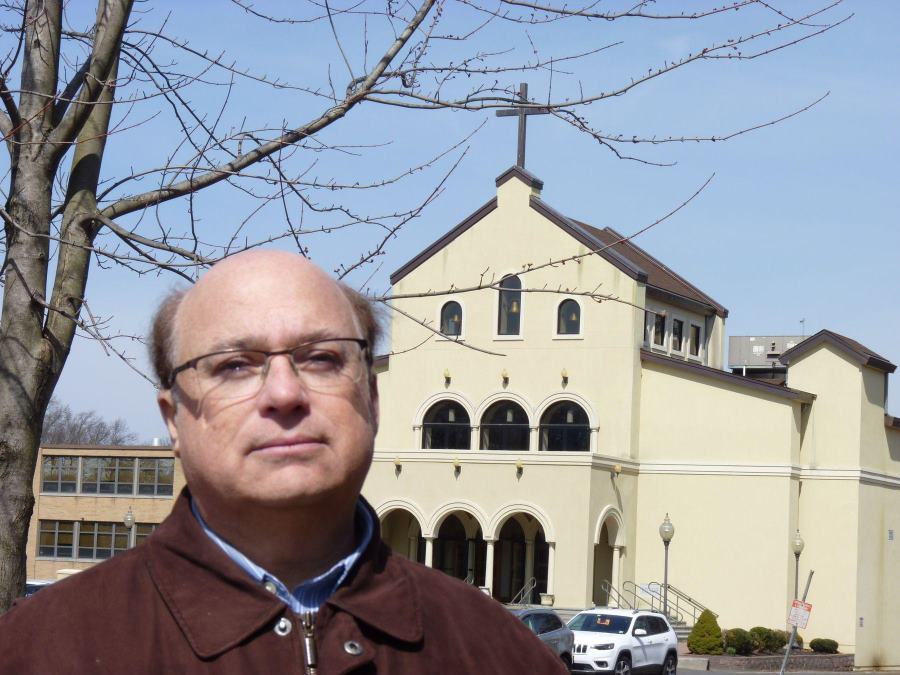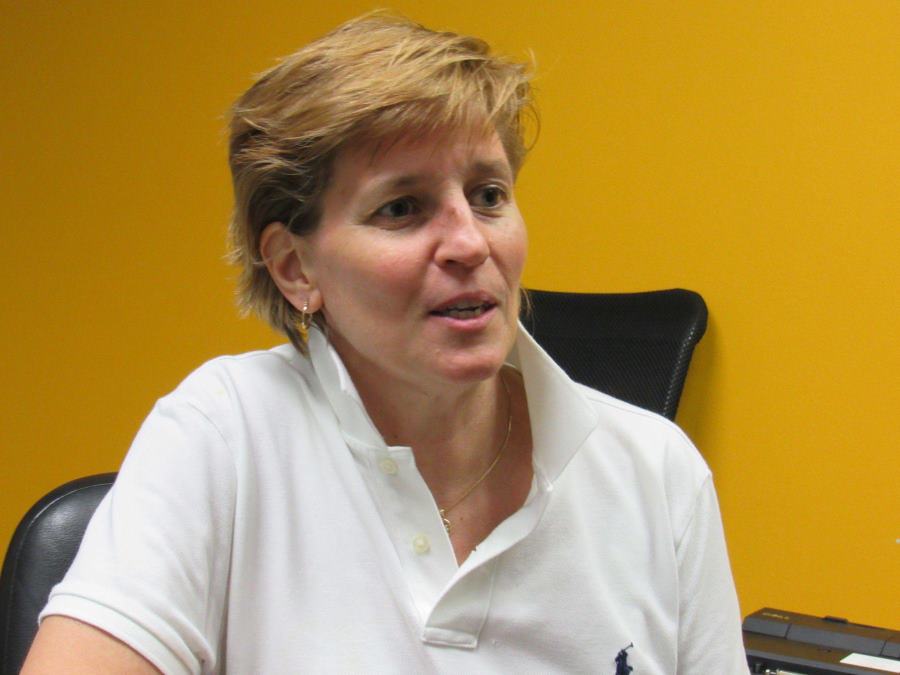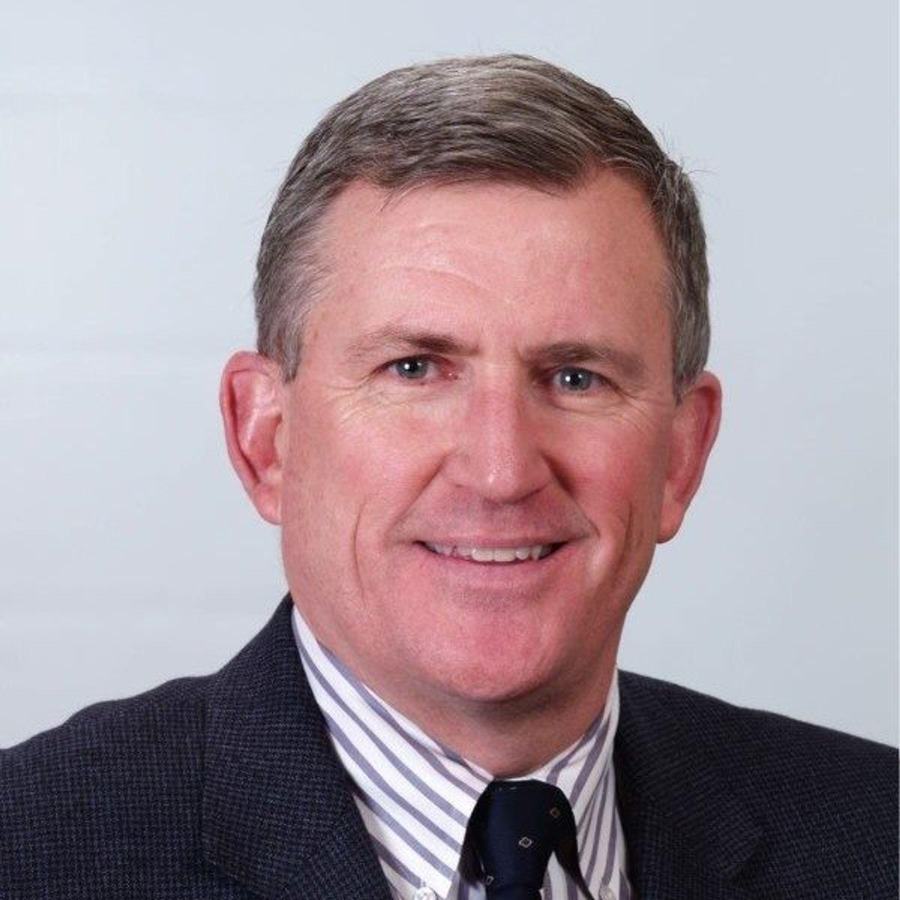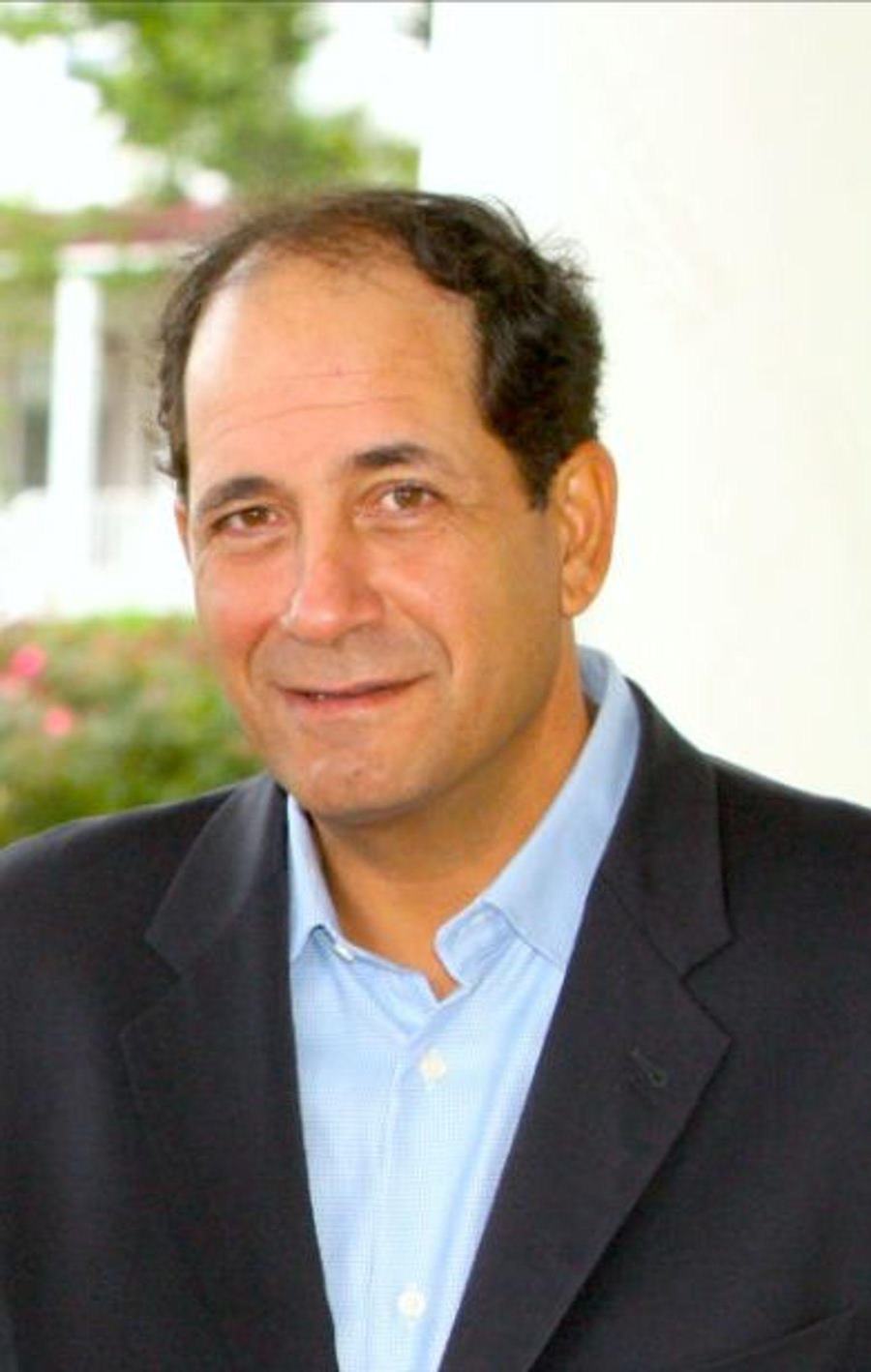|
NJ clergy sexual abuse victims say church compensation program isn't enough
By Nick Muscavage
Nearly 50 years after the first attack occurred, Todd Kostrub finds it easier to talk about the sexual abuse he said he endured at the hands of a Franciscan clergyman, but the pain never goes away. Yet, when Kostrub heard New Jersey’s five Catholic dioceses created an independent victim compensation program for victims of child sexual abuse, he was initially optimistic — until he learned that he was excluded from making a claim because the man was a brother of a religious order, not a diocesan priest. “The worst thing you can do to a victim, to a survivor, is to pretend you’re helping — that you’re doing the right thing," Kostrub said, "but in reality, what you’re doing is throwing somebody a drop of water when there’s a raging fire out there.” “The worst thing you can do to a victim, to a survivor, is to pretend you’re helping — that you’re doing the right thing." On Feb. 11, the state’s five Catholic dioceses announced the creation of the statewide Independent Victim Compensation Program to pay eligible victims who were sexually abused by clergy of the Roman Catholic Church while minors. The program will be administered by Kenneth Feinberg and Camille Biros, both of whom oversaw the Penn State sexual abuse claims, the 9/11 Victim Compensation Fund and the BP Gulf of Mexico Oil Spill Fund, among others. "While the Independent Victim Compensation Program cannot remedy the mistakes of the past or take away the pain from those who have suffered, it is hopefully a step, one of many, which we have taken to try to bring healing and renewal to the survivors and our Church," Tara Smith, a spokesperson for the Diocese of Metuchen said in a statement. "The program, which may be opposed by some, has already received positive support from parishioners, legislators and survivors of abuse, some of whom have already inquired to register with the program." The program, however, prohibits claims of clergy sexual abuse by members of a religious order, who do not answer to the Archdiocese of Newark or the Dioceses of Metuchen, Camden, Trenton or Paterson. Kostrub, of Surf City, said he was abused between 1972 to 1979 by a Franciscan brother named Kurt Munn. Although Munn was a brother of an independent Catholic order, he worked at Holy Assumption School, which is tethered to Holy Assumption Church in Roebling, and falls under the Diocese of Trenton. “He was my basketball coach, my baseball coach, he was in charge of the altar boys, and when I became seven years old I became eligible to become an altar boy,” Kostrub said. “And that’s when he began raping me.” Although Munn did not originate within a New Jersey diocese, the abuse occurred at a diocesan school on a diocesan property, Kostrub claimed. Rayanne Bennett, executive director of communications and media for the Diocese of Trenton, confirmed that Munn "was the subject of multiple allegations" brought to the diocese first in 1998 and again in 2007, in connection with his service, on behalf of the Franciscans, at Holy Assumption Church in Roebling. "The allegations were reported by the Diocese to the Burlington County Prosecutor’s Office," she said. "The Diocese reached out to the Orders of Franciscan Minor, Province of the Immaculate Conception in New York City, but Munn had left the order." Munn, 72, of DeWitt, Michigan, did not respond to multiple requests for comment. Religious Brothers and PriestsReligious brothers, unlike diocesan priests, vowed their lives independently from diocesan priesthood. They can work at diocesan properties and can become priests within their religious order. If they are ordained as priests, they oftentimes dress the same as diocesan priests and can preside over mass and offer sacraments. Religious brothers and priests are an ancient concept and date back centuries. According to the Center for Applied Research in the Apostolate at Georgetown University, there were 11,623 religious brothers and 21,920 religious priests in the United States in 1970. That same year there were a recorded 37,272 diocesan priests. In 2017, the latest year reported, there were 4,007 religious brothers, 11,424 religious priests and 25,757 diocesan priests. During that same year, there were a recorded 37,181 total priests in the United States. Religious brothers and religious priests, at a combined 15,431, made up roughly 41 percent of that number. Religious brothers and priests answer to an abbot or a provincial and live by a separate set of standards than diocesan priests. Diocesan priests answer to a bishop. Mark Crawford, the New Jersey director of the Survivors Network of those Abused by Priests (SNAP), estimates that there could be hundreds of victims abused by religious order brothers or priests in New Jersey, all of whom would be left out of the victim compensation program. "It’s far greater than anything we know of,” Crawford said. Crawford spent two years studying at a seminary program at a Salesian-operated college in New Jersey. The Salesians, like the Franciscans, are a religious order, and although he studied within the Franciscan Capuchin Fraternity, he is knowledgeable about many religious orders and church protocol. “For any religious order clergy member — whether it be a brother, a priest or a nun, it doesn’t matter— for them to work within a diocese, they need the express permission of the local diocesan bishop,” Crawford said. “We have parishes where the whole parish is served by a religious order.” Crawford also said he was abused by a member of clergy. Who else is excluded?Like Kostrub, Crawford is excluded from the victim compensation program. Crawford settled with the Archdiocese of Newark in an out-of-court agreement in 1998, which came with no admission of wrongdoing. The victim compensation program also excludes those who previously settled with the church. "The bruises would go away, the scars would go away, but what would never go away was that emotional torment, that fear of constantly being around him." Crawford said his abuser’s name was the Rev. Kenneth Martin. Martin, now of Brick, according to public records, was listed in February by the Archdiocese of Newark as having "multiple" credible accusations of child sexual abuse. Martin, 69, did not respond to requests for comment. Crawford, of Woodbridge, said that Martin was like a “father figure” to him and had a close relationship with his family. Crawford was 15 years old and attending St. Andrew’s Parish in Bayonne when the abuse began, he said. Martin was the associate pastor at the time. The abuse was not only sexual, but physical as well. “There was a time he took my younger brother and I to our basement, took down our pants, and beat us with a belt buckle,” Crawford said. “That healed. The bruises would go away, the scars would go away, but what would never go away was that emotional torment, that fear of constantly being around him.” Martin was also “controlling, manipulative and violent,” Crawford said. He ingratiated himself into Crawford’s family life and would talk himself into joining his family on vacations and trips, one of the few instances Crawford could get away from him. “I was a prisoner,” Crawford said. Different TimesCrawford noted that legal dealings with the church were much different decades ago than today. Back then, clergy abuse was viewed differently in society and was spoken about less than today, Crawford said. Now, there are television advertisements about law firms specializing in clergy abuse. Several decades ago, he said, most lawyers didn’t want anything to do with cases involving clergy abuse. “Lawyers didn’t want to take your case,” Crawford said of the time. Over the past 10 years, though, there have been several high-profile court cases involving the church. In 2007, the Roman Catholic Diocese of San Diego reached a $198 million agreement with 144 childhood sexual abuse victims and the Roman Catholic Archdiocese of Portland in Oregon agreed pay a $75 million settlement with 177 claimants. Before then, "you never got to court with the church,” Crawford said. “It just didn’t happen.” There was also no internet and no one had any idea how widespread clergy abuse was, he said. Susan Bisaha, who said she was abused by a priest named the Rev. Mark Dolak more than 40 years ago while a congregant of the Diocese of Metuchen, also entered into an out-of-court agreement with the church. She said that when she signed her confidentiality agreement in 1992, she was a young woman without much knowledge of clergy sexual abuse. “I was in my early to mid-20s,” she said. “At the time I thought, ‘Well, this is my only option.’” She settled for $15,000 and the agreement came with no admission of guilt or wrongdoing from the church. Once the attorney’s fees and other costs were accounted for, Bisaha received about $12,000. Her exclusion from the recently established compensation program feels like another slap in the face, she said. Dolak was named in February by the Diocese of Metuchen as having credible accusations of child sexual abuse. Dolak, 66, who now lives in Asbury Park, did not respond to requests for comment. “People like myself who signed a confidentiality agreement, for whatever reason, are excluded, and that infuriates me,” said Bisaha, of Ocean Township. “As a victim, I feel like I deserve to be included. I am not a candidate for the victims’ compensation fund.” Even if monetary compensation is out of the question, she implored the church to offer some sort of compensation to victims of clergy abuse. Counseling services reimbursed through the church is one possible form of compensation victims and advocates said they would want to see the program offer. Crawford, however, went a step further. "When they settled those cases, they held all the cards," Crawford said of the church. "Many, many victims settled for peanuts. If the church is trying to say they want to do justice by the victims, then I certainly want to ask why would you not consider revisiting those settlements." At the very least, he said, "I absolutely believe victims should be able to go back and seek counseling if that's what they need and hopefully the church leadership will approve and do just that." 'Understated significantly'Richard Pompelio, an attorney with the Warren-based law firm DiFrancesco Bateman who specializes in victim civil litigation, said monetary settlements were lower in the past because of a lack of knowledge. “The victims were looked upon basically as just another damaged party, and there really wasn’t a great deal of knowledge about traumatic grief impact,” he said. “So therefore, the monetary value of these cases, I think, was understated significantly.” Pompelio said damages to child sexual abuse victims can be lifelong. “They were kids when they were victimized,” he said. “The people dealing with them had no clue the injuries they suffered.” Pompelio said the settlement agreements clergy abuse victims entered into over the past several decades were supposed to be contracts between the church and the victims, “but there was no equal bargaining power.” Robert Hoatson, a former priest who is now an expert in clergy abuse and advocate for victims, said the victim compensation program is important for those who may not want to endure a public trial, but questioned timing of its creation. Revamping Statutes“We’re on the precipice of passing the Child Victims Act in New Jersey, which should happen probably in mid-April, which would give anybody that was sexually abused in New Jersey as a child the opportunity to hold their abusers accountable in a court of law,” Hoatson said. He said he sees the timing of the victim of compensation program as a preemptive measure ahead of the Child Victims Act, which would change the statue of limitations for victims of child sexual abuse. “There’s no question that that is the reason why they did it,” Hoatson said. “The reason why they set up this program was to try to minimize the damage that might come if the law was changed, if the statutes were changed. No question. Everything the church does is self-serving.” He said that there are victims who do not wish to bring themselves and their cases to court during a public trial, so the victim compensation program established by the state’s dioceses “is a good alternative.” Hoatson said he would not, however, advise victims of clergy abuse to approach the compensation program without an attorney. If a victim is not represented by a lawyer, the administrators of the victim compensation program will provide a pro bono attorney to offer legal counseling to the claimant, according to the program's protocol. Hoatson said it is hard to know exactly how many people may be excluded from the program. “The secret of the church is that we do not know how many settlements that they make secretly,” Hoatson said. The number of those who have settled with the Catholic church may be unknown, but one attorney said he has handled hundreds of cases, providing a glimpse into the magnitude of how many clergy sexual abuse cases there may be. “I’ve been litigating cases against New Jersey’s Catholic church for 20 years,” said Gregory Gianforcaro, a Phillipsburg-based attorney. “I’ve settled well over 250 cases — in this state alone.” Gianforcaro, who has handled high profile cases of clergy sexual abuse such as the lawsuit against the Delabarton School, also believes the victim compensation program was established only because of the potential changes with the statute of limitations. “If the Legislature was not passing this bill, or introducing this bill, there would be no compensation program, I am 100 percent sure of that,” he said. Gianforcaro said his clients have been fighting for changing the statute of limitations for over 17 years, “and for the last 17 years, even though there have been hundreds of victims of child sexual abuse by priests, and the churches know that, never has there even been a hint of any compensation package. Like Hoatson, Gianforcaro believes the compensation program is self-serving. “It is only now that the church wants to appear as if they are stepping up, when in reality it is another means of trying to limit their damages,” he said. Gianforcaro also said he believes the program should offer counseling services to those who previously settled who cannot apply for the program. Gianforcaro, who has represented victims sexually abused by brothers and priests of religious orders, called the exclusion of those abused by religious brothers and religious priests “even though they were sexually abused in a Roman Catholic parish in one of the five dioceses” unfair. “I do not understand that,” he added. “By eliminating those who were sexually abused at diocesan parishes by ordained priests who just happened to be affiliated with a religious order, to me, is absolutely not fair.” Changing TideKostrub, the man who said he was abused as a child by a Franciscan brother at a diocesan church, said no one would listen to him when he pushed for a victim compensation program. “Mark (Crawford) and I personally have been working on this bill now for over 15 years,”Kostrub said. “Mark has approached the church, I have talked to people, no one would listen to anything the victims said. "Yet now, at the last minute, when this bill started gaining traction, out of the blue, now they’re like look at us, we’re doing the right thing,” Kostrub said. “I think it’s highly hypocritical and suspicious.” State senators Joseph Vitale, D-Middlesex, and Nicholas Scutari, D-Union, are sponsoring the Child Victims Act. Vitale introduced a bill revamping the statute of limitations for victims of child sexual abuse every year since he became a senator, he said. “I’ve been in office for 21 years, I guess it was about 20 years ago victims of clergy abuse came to my office, a few of them lived in my district, and they wanted me to talk about that issue,” Vitale said. “They advocated for changes of the law.” Current law states that if someone is sexually abused as a child, the victim has two years after they turn 18 to bring a civil claim against the abuser or the institution. “The two years is a ridiculously short amount of time,” Vitale said. “It really worked for the disadvantage of victims because most victims don’t recognize the abuse, or come to terms with it, until the average age of 52.” Vitale’s bill, if signed into law, will allow victims to bring their abusers to civil court up to age 55 or seven years after discovering an injury was caused by abuse, whichever is longer. The seven years after discovery also applies for individuals who claim they were sexually abused while they were adults. “It’s the lobbying by the church, and mostly by the church, that has forestalled its progress,” Vitale said of the bill, adding that he believes “it is not a coincidence” that the church has established a compensation fund around the same time his bill has finally gained traction. “I believe that Cardinal Tobin is a good man and he wants to do the right thing, and he is in terms of the fund,” Vitale said, adding that Feinberg and Biros, the administrators of the fund, are “terrific” and know what they are doing in terms of recognizing victims. The senator also said, though, that the compensation program will not offer documentation to its victims, while a civil lawsuit would be able to produce documents through the court discovery process. “If we get to know who the pedophiles were, and who enabled them, that helps protect children going forward,” Vitale said. Vitale’s bill passed the state Senate 32-1 on March 14 and the Assembly 75-5 on March 25. It now needs to be signed by Gov. Phil Murphy to become law. For Kostrub, the legislation is a step in the right direction, but nothing will ever make him feel whole. “I’ll never get my childhood back," he said. Contact: ngmuscavage@gannettnj.com
|
.
Any original material on these pages is copyright © BishopAccountability.org 2004. Reproduce freely with attribution.
